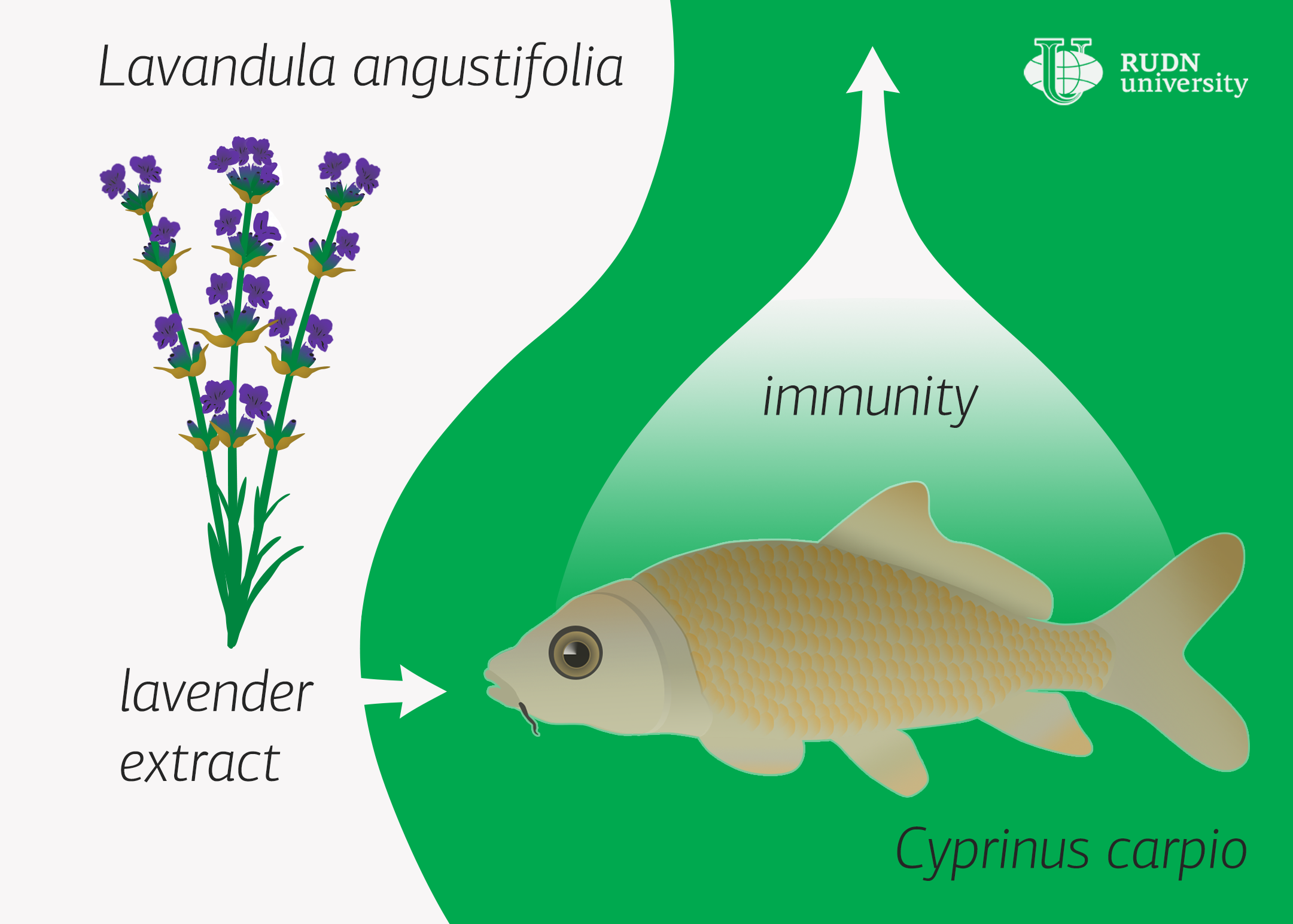Biologist from RUDN University Morteza Yousefi has found that lavender extract added to the food reduces stress and improves immunity in carp in fish farms. The discovery may be used in fish farming.
A significant part of fish in fish farms dies due to illnesses provoked by stress during transportation, sorting, and other operations. The use of antibiotics for the treatment and prevention of infections in fish is not only costly, but also leads to bacterial strains resistant to antibiotics to develop. Therefore, the use of herbal preparations is of particular value as a means of maintaining the health of fish.
Professor Yousefi of RUDN University and his colleagues decided to check whether inclusion of narrow-leaved lavender extract (Lavandula angustifolia) to the feed of common carp (Cyprinus carpio) can enhance the immunity of the fish.
It had already been known that the components of narrow-leaved lavender extract, cineole and linalool, have anti-inflammatory, antioxidant, and anti-stress effects. The biologists assumed that these substances can help fish cope with the negative effects of the stress hormone cortisol.
Youssefi and his colleagues divided the fish into four groups. For 70 days, the fish in the first group received a diet which contained 0.5% of lavender extract, 1% in the second group, and 1.5% in the third one. The fourth group was the control, in which the carps did not receive lavender extract at all. After that, veterinarians subjected the fish to three hours of stress: the water level in the aquarium was reduced by 90%. Before and after the stress test, the authors studied a number of indicators that directly or indirectly reflect the effects of stress in fish.
After 70 days, the fish that received 1% and 1.5% lavender extract additives demonstrated positive changes such as a significant increase in the concentration of soluble and cell-mediated factors of innate immunity, i.e. plasma globulins, immunoglobulins, white blood cells, as well as increased activity of plasma lysozyme and the alternative pathway complement. In the same two experimental groups, gene expression of a number of pro-inflammatory proteins was lower than that in the control group. Lavender did not significantly affect fish growth.
Professor Yousefi and his colleagues have found that levels of stress markers in the blood, cortisol and glucose, increased significantly after fish in each group experienced stress. But the more lavender extract fish received, the lower these indicators were. Moreover, fish from lavender extract receiving groups showed another beneficial difference from the control group: a higher level of catalase and superoxiddismutase enzymes in the blood. This indicates that their antioxidant defense systems were in better state than those in the fish in control group.
The inclusion of lavender extract to the feed of common carp is recommended in an amount of 1.0-1.5% to suppress stress, inflammation, and oxidative stress and to enhance the immune response in fish, the scientists from RUDN University concluded.
The article was published in the journal Aquaculture.
